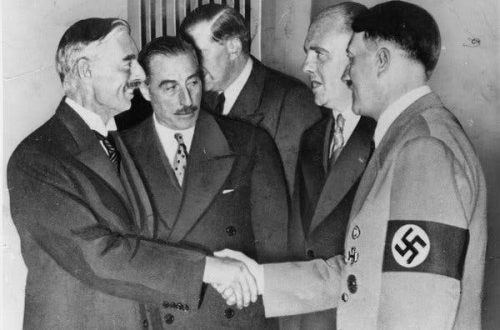Michael Petrou, author of a book about the working-class Canadians who went to Spain to fight against Franco’s fascist uprising in the 1930s, makes a telling point about the parallels between that war and the current civil war in Syria. It has to do with what Petrou calls “the fallacy of non-intervention.”
That was the policy adopted by the democracies — including Canada — in 1936, when the Spanish general Francisco Franco, backed by his allies Adolf Hitler and Benito Mussolini, launched a rebellion against Spain’s democratically elected government that eventually toppled it and enslaved the country.
We said it was a Spanish conflict, a civil war, and should be decided by the Spaniards. It wasn’t. The democracies might not have intervened, but other powers did. Fascist Italy and Nazi Germany picked one side; Stalinist Soviet Union picked the other.
When the war began, the Communists were a minor force within Spain’s republican coalition. Then Spain’s presumed democratic friends deserted it, while the Soviet Union sent weapons and men. Soviet and Spanish Communist power consequently grew. By 1937, the Soviet NKVD and its Spanish allies ran secret jails in Madrid where they murdered political opponents from amongst their supposed anti-fascist comrades.
And in Barcelona too. Those who have read George Orwell’s “Homage to Catalonia” (and if you haven’t, what are you waiting for?) will be familiar with that ugly chapter of the Spanish civil war.
Which brings us to Syria. It’s been two years, some 80,000 deaths, and hundreds of thousands of displaced. What began as a democratic uprising has become a civil war. Those against doing anything about it have cycled through various arguments, all of which miss a basic point. Non-intervention isn’t an option, because intervention is already happening. Saying you’re against intervention in Syria is like standing in the middle of a blizzard and saying you’re against snow.
The Iranians are backing dictator Bashar al-Assad’s regime. Hezbollah, the Lebanese militia that usually concerns itself with rocketing Israel or preparing for the same, has dispatched fighters to Assad. The opposition is a diverse group, but what seems clear is that that the Salafi Islamists among them are gaining strength. Of course they are. For two years, they’ve been getting money and support from Gulf Arab states, while more the more moderate factions fighting Assad have received basically nothing the West.
Oh, maybe that’s not fair. The United States is sending “non-lethal” aid, because when it comes to knocking a strafing MiG jet fighter out of the sky, nothing beats a pair of night vision goggles. Canada is footing the bill for some refugees’ tents. Maybe we’ll speed up the refugee process for Syrians fleeing Assad…
But at least all this sitting on our hands has given time for a more coherent isolationist pitch to take shape. After years of fretting about the nature of opposition, now it does look a lot more unsavoury than when the war began. Our timidity has become a self-reinforcing excuse. Non-intervention weakened the hands of Spanish democrats, and it does the same to Syrian ones.
Meanwhile the Obama administration continues to dither. Secretary of State John Kerry reached an agreement with the pro-Assad Russian government to bring the warring sides together at a conference (which the Russians are already trying to delay)– as if there was any chance such a conference could succeed while Assad insists on remaining in power. And the Russians show no sign of ending their military support for Assad.
Petrou is right:
The more moderate elements of the opposition should be identified and given the weapons they need to prevail. There are escalating options on top of this: a protected safe haven on the ground; air strikes; a no-fly zone. The Syrian rebels have not asked for foreign troops, and I’m not suggesting we offer them. But a negotiated peace is not imminent. This war will end when one side wins. If we care about the outcome, we should be willing to shape it.


